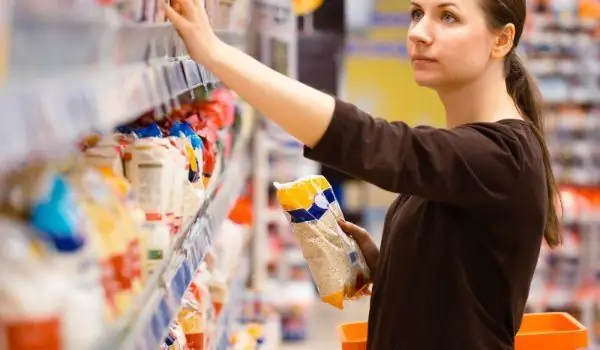2025 Author: Jasmine Walkman | [email protected]. Last modified: 2025-01-23 10:18
Nearly 90 percent of Bulgarian raspberries are exported abroad. Native fruits are bought mainly from Germany, Belgium, England, France and the Netherlands, leaving the border either frozen or in the form of jam.
The news came personally from the chairman of the National Association of Raspberry Growers Bozhidar Petkov, who explained that the domestic consumption of raspberries in our country it is only within 5-10 percent.
And while foreign producers buy 70 percent of olives frozen, 20 percent crushed and lastly in the form of marmalades and juices, in our country the fruits are consumed mainly as juices or marmalades.
Quality fresh Bulgarian raspberries are sought after mainly on the Black Sea coast, where they are present in the menus of restaurants and hotels.

Until last year, second-quality fruits, which are used mainly for the production of compotes, marmalades and jams, were exported mainly to Russia, Petkov explained, but the embargo closed the markets there.
However, native raspberries have found a market in other European countries and more and more companies from the Netherlands, Belgium and the UK are importing delicious fruits from their home countries.
This is due to the ever higher quality of native raspberries, which has been observed in recent years.
The active campaign for harvesting raspberries is in full swing. A slight increase in purchase prices is expected this year, while farmers are reporting a rich harvest.
This year the purchase prices per kilogram of raspberries range from about 3.60-3.90 for industrial raspberries for production to BGN 4-6 per kilogram for fresh raspberries for direct consumption.
Prices are one idea higher than last year, when a kilogram of aromatic fruits was traded for about 3 - 3.60 levs per kilogram for raspberries, industrial production.

The prices of raspberries in our country depend directly on the yields and prices of the aromatic fruit in Serbia. This is due to the fact that in terms of quality the native raspberry is superior to the Serbian raspberry and a large part of the Serbian processors prefer to buy our raspberries.
The interest in native raspberries is due to the fact that they are offered at attractive prices, which are up to 20 percent lower.
Currently in Serbia, a kilo of raspberries of the Vilamet variety is bought at prices of 2.20 euros per kilogram, and the Miker variety is traded at prices of about 2.4 euros per kilogram. According to experts, higher fruit prices in Serbia are due to the deficit formed in recent years.
Against the background of the decline in raspberry production in Serbia, local producers expect a good raspberry harvest. Experts estimate that between 700 and 1,000 kg per decare will be harvested from the summer varieties Vilamen, Miker, Shopska and Bulgarian Ruby.
Recommended:
Refined Carbohydrates: What Are They And Why Are They Harmful?

Not all carbohydrates are equal. The truth is that this food group is often seen as harmful . However, this is a myth - some foods are rich in carbohydrates, but on the other hand are extremely useful and nutritious. On the other hand, refined carbohydrates are harmful because they do not contain vitamins and minerals, they have no nutritional value.
They Ban Trans Fats If They Prove Their Harm

These days, the new European labeling requirements come into force. They require food allergens to be written on a colored background or in a different font. The adopted law does not clarify whether hazardous substances should be listed in the menu of the establishments where they are served.
Up To 20 Percent Of Eggs In Greece Are Bulgarian

Nearly 20 percent of the eggs in the trade network of our neighbor Greece are harvested in Bulgaria. This was announced by the chairman of the chairman of the poultry farmers in our country - Ivaylo Galabov. According to him, not only the Greek resorts located near our country rely on the export of Bulgarian eggs , but most of the chains in our southern neighbor have contracts with Bulgarian producers.
Only 14 Percent Of The Tomatoes On The Market Are Bulgarian

Only 14 percent of the tomatoes we bought in January were Bulgarian-made, said Eduard Stoychev, chairman of the State Commission on Commodity Exchanges and Markets. During the festive December, the percentage of Bulgarian tomatoes was even lower - only 11%, said the expert, adding that most of the fruits and vegetables in our markets are imported.
We Negotiate The Export Of Bulgarian Compotes To Ukraine

Bulgarian producers of canned fruits and vegetables negotiate cooperation with partners from Ukraine in order to place Bulgarian compotes on their market. The meeting of Bulgarian and Ukrainian producers will take place from October 29 to November 2 in Odessa.

